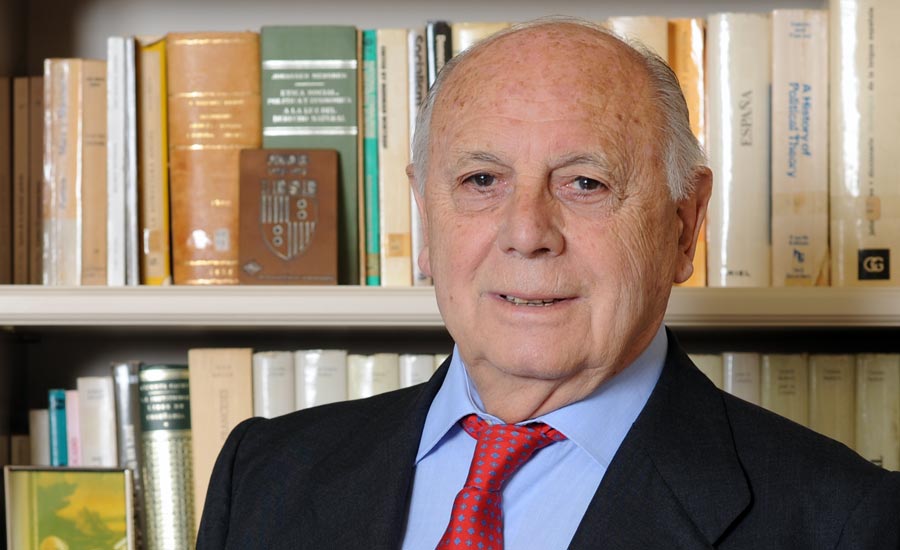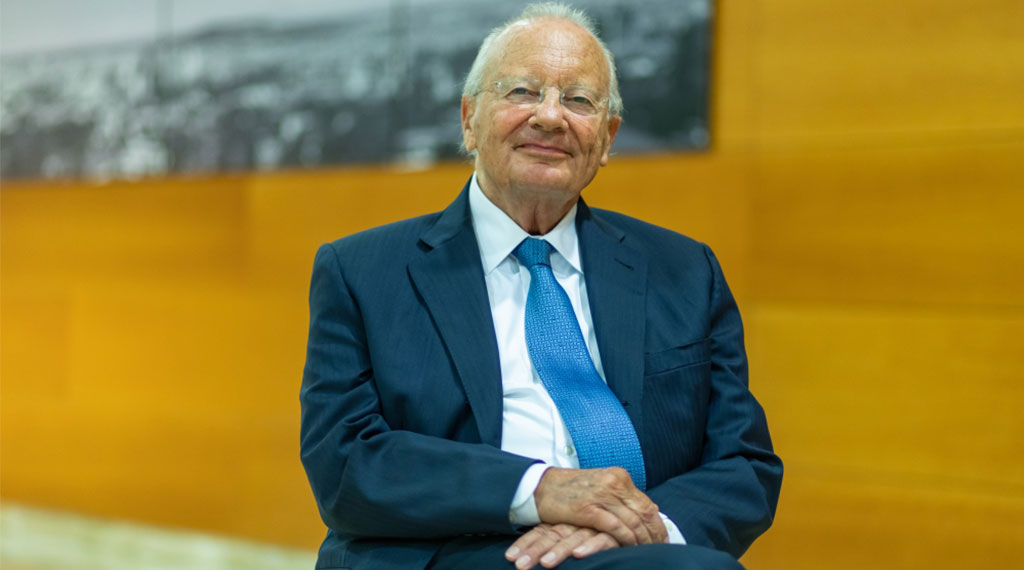Stories
Remembering Fernando Pereira
Former dean and professor was a vital part of IESE community for six decades
April 4, 2018

Fernando Pereira, a long-time professor of accounting and former dean who formed part of the academic fabric of IESE from its earliest days, passed away on March 31 in Barcelona. He was 87.
Prof. Pereira worked alongside Antonio Valero, IESE’s first dean, as the school was being set up in the late 1950s, and his involvement with IESE continued for six decades. He was a professor emeritus in the Accounting and Control Department at the time of his death.
Known for combining the professional rigor of an accountant with the ability to explain complex financial concepts in an accessible way, Prof. Pereira taught generations of students who went on to become business leaders in Spain and beyond. His first book, Accounting for Management, was published in 1970 and re-printed 25 times, selling more than 100,000 copies.
Prof. Pereira served as dean of IESE from 1970 to 1978. Under his watch, IESE established a permanent presence in Madrid, a decision that has proven key to the school’s expansion in five campuses across the globe. He nurtured the relationship between IESE and Harvard Business School, and supported business schools in Argentina and Mexico.
As dean, he showed that leading is a process that begins with knowing how to listen. He was convinced that to lead was to serve – the institutional interests of IESE as well as the interests of the people who worked and studied there. Prof. Pereira believed that people – staff, students and alumni, in IESE’s case – are the heart of companies and organizations.
On receiving in 2016 a special commemoration for years of service, Pereira said, “One of the things that I have most enjoyed over the years is listening to and talking with the people who make up the IESE community (academics, non-academics, and program participants). This has been a source of satisfaction to me, independent of the opinions and convictions that each person may hold. Without hesitation, I describe the relationships I have established over these years as friendly and enriching.”
Known for Sense of Humor and Intellectual Curiosity
By his own admission, Prof. Pereira had not expected to go into teaching as he worked toward his PhD in Civil Engineering at the Escuela Técnica Superior de Ingenieros de Caminos, Canales y Puertos at the Universidad Politécnica de Madrid. But he was drawn into the novel project of creating a business school such as IESE, with its unique views toward work and business and its Catholic foundations.
For those close to him, Prof. Pereira was a source of constant good humor and endless intellectual curiosity. He was an inveterate reader, with a particular fondness for early 20th-century British writers.
“Fernando Pereira was convinced of the value and importance of friendship, based on his knowledge of the classics and on his personal experiences,” said Carlos Cavallé, also a former dean. “He knew that true friendship guaranteed Christian virtues such as sincerity, loyalty, solidarity and freedom. For that reason, there are so many people who consider him one of their best friends.”
Jordi Canals, former dean and professor, added: “For friends and colleagues, he was a great source of counsel. He knew how to listen, putting himself in the place of the speaker, always understanding each individual. Additionally, Fernando, an extraordinarily kind and good person, knew how to find the right words, with affection and thoroughness, so that the speaker would accept their own responsibility. Many alumni have noted how Fernando helped them at a given moment, in difficult circumstances, dedicating his time, listening and helping them focus better.”
Said Dean Franz Heukamp: “I could highlight many of Fernando’s virtues, but I will center on three. In the first place, it has been a privilege for IESE to have a professor and dean with such an enormous intellectual capacity, always at the service of others. In particular, as a professor of accounting and later as dean, he knew how to simplify problems to their essence, making the complex seem easy.
“In second place, Fernando has been a person of exemplary humility, always caring about others, with little regard for himself. Lastly, Fernando has had, and this is possibly his greatest legacy, an extraordinary capacity for connecting with others, exemplified in his approachability. It is amazing to see how many people have anecdotes involving him, which show his proximity. Because of all this, Fernando will accompany us always.”


